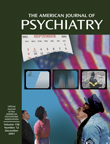One way to divide the subjects of fiction is ordinary versus exotic—how different from the expected reader is the novel’s hero? Many of the novels we tend to place at the core of the genre are ordinary in this sense—Pride and Prejudice, say, or David Copperfield, or War and Peace. It’s not only a matter of social class; personality has a role. Readers are likely to believe they might respond to challenges as the heroes do, Elizabeth or David or Pierre.
Much modern fiction is exotic—strong first-person voice, highly particular setting, quirky or even offensive protagonist. Few readers are as anomic as Meursault, Camus’s Stranger; fewer are as sociopathic as Quentin P., the serial killer who tells his story in Joyce Carol Oates’s Zombie. For most readers of postcolonial or regional American fiction—those who live elsewhere—the book’s charm resides in travelogue, and in the surprise of discovering the familiar in unexpected locales. Of course, all narrative is a mixture of ordinary and exotic—think of Dante’s Inferno, where a most reliable narrator introduces a collection of grotesques.
Some years ago, I exchanged letters with an accomplished novelist over which form of fiction is more difficult to pull off. The exotic’s magic is making the foreign sympathetic, even obvious. My contention was that today it may be yet harder to transform or energize the mundane.
All this is by way of explaining my admiration for a local—Providence, R.I.—writer, Hester Kaplan. Hester is a fixture here. She is at the center of the most successful writers’ group; she teaches classes for beginning writers at the “Y.” She is also, in my opinion, a yet-to-be-discovered master of a demanding craft, letting everyday detail speak.
Undiscovered is not quite accurate. Three years ago, Kaplan won the Flannery O’Connor Award for her collection of short stories,
The Edge of Marriage (1). (It has just been reissued in paperback by W.W. Norton.) The characters are spouses, parents, and children who observe each other’s failures at connection and experience their own near-misses, disasters barely averted. The stories are set in unnamed cities and suburbs. The writing turns sudden corners, in which character is revealed and the private opens onto the universal. A woman looks at a young man and in her mind commands him, “You shovel the snow yourself. You see how cold life can be.”
In her debut novel, Kinship Theory, Kaplan takes a Hollywood-style high concept—a mother bears a child for her infertile daughter—and makes it serve the purposes of literature. Her method is to let her settings and characters remain otherwise ordinary, in the sense I have alluded to.
Maggie Crown, a medical researcher, lives in Newton Centre, a Boston suburb, in a modest house that has deteriorated steadily since her divorce 9 years earlier from her fastidious husband. Maggie is bearing a child for her daughter, Dale, who is not so grateful as Maggie thinks she should be for Maggie’s gift. Once the child is born, it is not clear what sort of mother Dale will be or where Maggie’s involvement should end. In an era when families have no fixed form and complex biological interventions are common, even surrogacy takes on the coloring of the routine.
What is extraordinary here is the evocation of intimate emotions and the moral freight they bear. How much hope is Maggie allowed, given the shortcomings of her first attempt at parenthood, with Dale? How much freedom is she permitted? May she drink? Enter into a desperate affair? How intertwined should our lives be with those of our children? How do those obligations arise? Maggie’s responses to this altruistic pregnancy serve to define the parameters of parenthood.
Here is Maggie observing an interaction between her son-in-law and daughter:
When they pulled slightly apart, Nate began to pat Dale’s back. There was something unsettling in his movement, its weightlessness, its attempt to console rather than seduce. It was how you might touch a person whose fears are real but tedious.…Maggie knew she tended to watch too much, too closely, that she recklessly concocted scenarios out of inadvertent gestures.
But then, how aware may a mother be of defects in her daughter’s marriage? Does it make a difference that the mother is entrusting the couple with an infant?
Finally, I don’t know whether the contrast between ordinary and exotic can stand. There is no center, no privileged position from which to map the culture. But I continue to reserve a special admiration for fiction about characters with modest flaws, fiction that takes seriously the moral complexity of daily choices in settings where pressures are subtle and all the actors are of goodwill. Hester Kaplan’s skill in that art makes her a writer to watch, and to read now.

